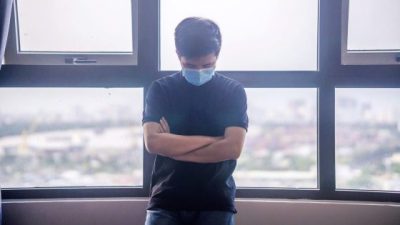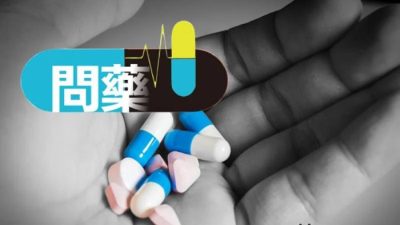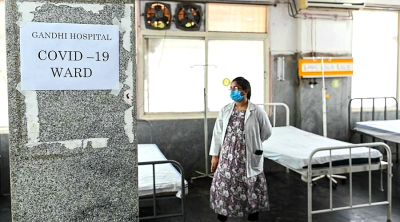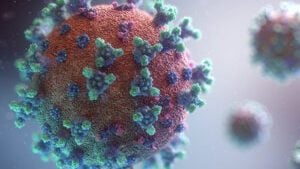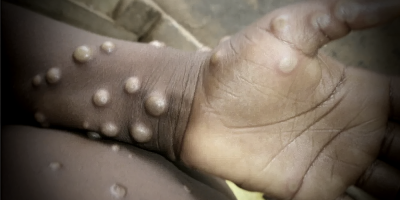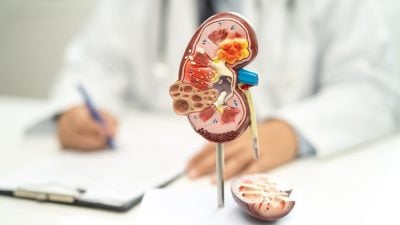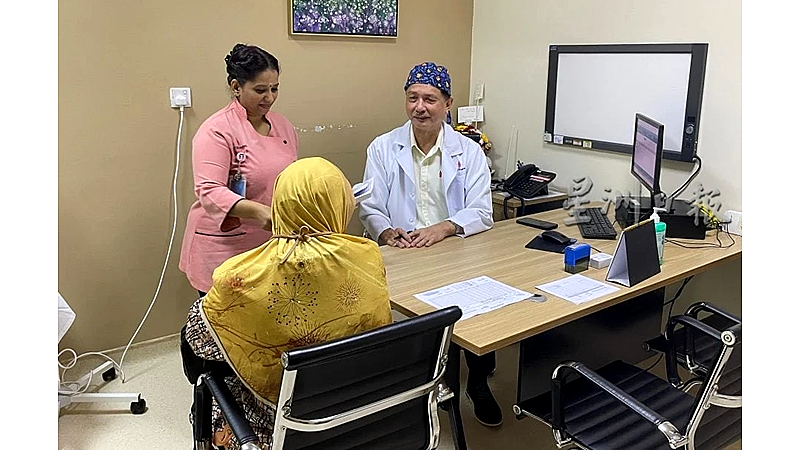
A patient from Selangor referred to UCSI Hospital at Bandar Springhill, Port Dickson was surprised and delighted to find retired Health director-general Tan Sri Dr Noor Hisham Abdullah as her attending doctor.
To her and the rest of Malaysians, Dr Noor Hisham is regarded as a “Covid-19 hero”, a household name in Malaysia when he was the director-general of Health Ministry in 2020.
Wearing his white coat, he stood at the forefront of the pandemic battle in 2020, during a turbulent political period that saw Malaysia change prime ministers three times in three years.
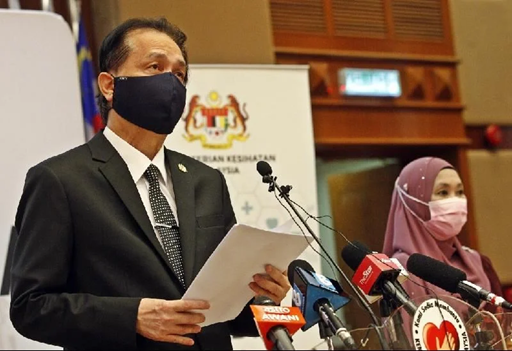
Some painted his portrait in tribute, children wrote heartfelt thank-you notes, and local artists immortalized his image in murals across the city to express their appreciation that he had led the medical team in Malaysia to combat Covid-19.
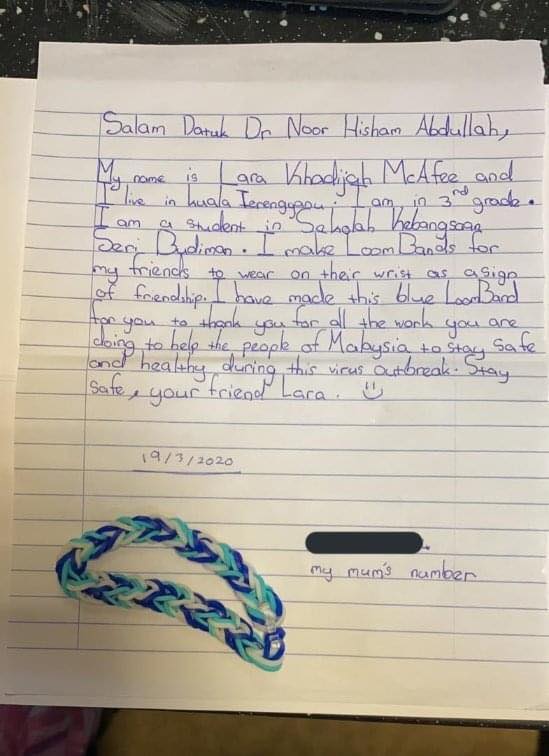
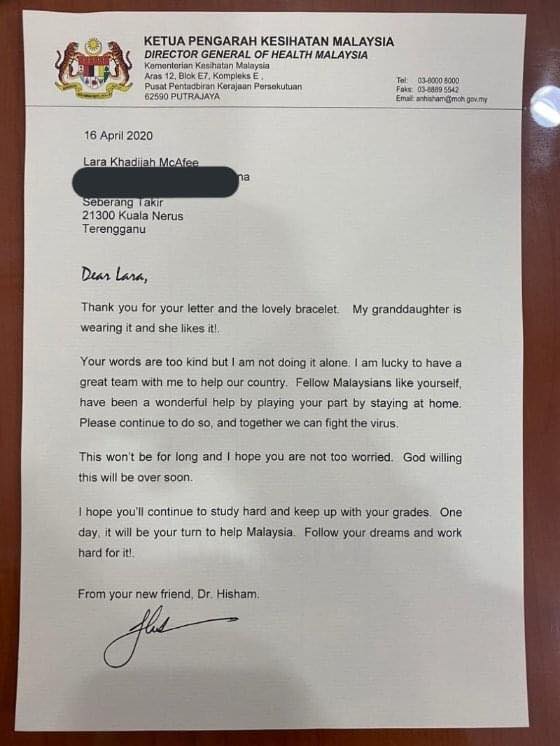
On April 21, 2023, holding a bouquet of flowers, he retired from his long-held post as the Director-General of the Health Ministry after 35 years of public service, including 10 years as the director-general.
Fading away from the limelight, Dr Noor Hisham does not lead a quiet life.
Instead, he continues to save life at USCI hospital.
“I’m very excited now! Although I retired from the government, my career in the private sector only began less than two years ago. This allows me to contribute more in private healthcare,” he said with a smile.
In October 2023, less than half a year after leaving the public sector as the Director-General of Health Ministry, he was appointed chairman of UCSI Healthcare Group, based at Springhill Hospital in Port Dickson, Negeri Sembilan.
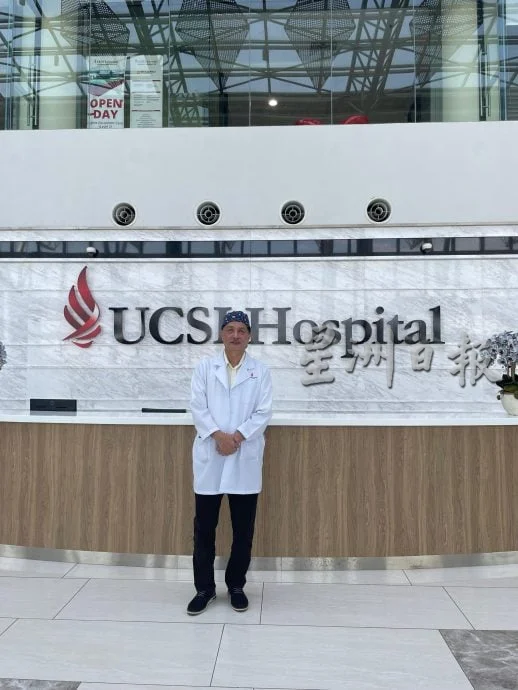
Now, his week consists of two days of outpatient consultations, three days for surgeries, meetings or lectures, and the rest of the time is reserved for planning and strategizing.
“Mondays and Wednesdays are my clinic days—I’m in the clinic until 3 or 4 p.m., reviewing reports and scans. On Tuesdays, Thursdays, and Fridays, I may be in the operating theatre or attending meetings with other hospitals,” he said.
Driving private healthcare development
With enthusiasm, he used his computer mouse to show the layout of UCSI hospital on screen.
“Look, there are five entrances, so ambulances won’t get stuck…” He clicked to another image.
“The hospital and surrounding facilities cover about 160 acres. Next door will be a Google data center, and across the road is a Chinese medical equipment manufacturer that will produce and export to the Asian market,” he said.
He spoke at length about the hospital’s expansion plans and his vision for developing private healthcare—a new goal he’s pursuing post-retirement, pouring his time and energy back into his greatest passion.
A surgeon at heart
Noor Hisham, an endocrine surgeon specializing in breast cancer treatment, showed several clinical photographs—some bloody, some depicting rare and complex cases.
While others might look away, he examined them intently, explaining with focus and certainty, emphasizing that Malaysia’s medical standards are on par with other countries.
Seeing how much of his time is still spent on consultations, surgeries, and medical meetings, we asked what he enjoys outside work—perhaps traveling?
“Travelling is for relaxation, but my real passion is performing surgery and being a surgeon,” he replied.
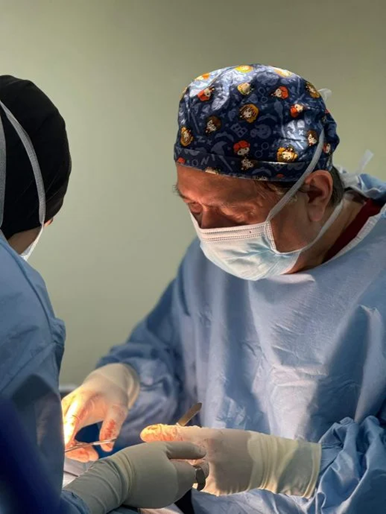
Prefer operating table over administration
Compared to heavy administrative duties in the government, Dr Noor Hisham prefers the familiarity of the operating theatre.
Even during his tenure as director-general, he made an agreement with the Minister to see patients every Tuesday and perform surgeries every Friday—a routine he kept for over a decade.
Because of this, his surgical skills never went rusty, and he maintained sharp clinical instincts. Today, he still performs about 20 surgeries a month.
“As a surgeon, we can only treat one patient at a time. But as Health Ministry Director-General, if you implement the right public health policy, you can save an entire community or district,” he said
Dr Noor Hisham still vividly recalls the early days of Malaysia’s Covid-19 outbreak.
Five years ago, the country was in a state of panic, and on top of that came a sudden change of government—7th Prime Minister Tun Dr Mahathir Mohamad resigned unexpectedly following the Sheraton Move, leaving a political vacuum.
Foe one week Malaysia was without a government.
Without a Prime Minister, there was also no Health Minister.
If a politician had stepped forward to lead the pandemic response, it would have triggered partisan attacks.
“I’m not a politician; I’m a technocrat. As the Health Ministry director-general, this was my duty,” Dr Noor Hisham said.
He faced an almost unknown battlefield—no vaccines, no knowledge of how the virus spread, and not even a clear understanding of what the virus was.
Dr Noor Hisham stepped up to the podium and read out the numbers—new cases, recoveries, deaths, new clusters, and the number of patients in intensive care on a daily basis.
This press conference routine continued for nearly two years. Every evening at 5 p.m., Malaysians tuned in to watch him live.
He would always end with the same reminder: “Wash your hands often, wear a mask, and avoid crowded or enclosed spaces.”
During the peak, each day was a hard-fought battle.
Data from all states was collected in the morning, compiled by noon, analyzed between noon and 2 p.m., and trends determined by evening.
Seeing hundreds of daily deaths was heartbreaking.
“I remember during the peak, 400 to 500 people were dying daily. Mortuaries couldn’t cope. Everything happened so fast,” he said.
Malaysia recorded 19,550 new Covid-19 cases and a record 592 daily deaths on September 11, 2021.
Despite the exhaustion, he remained composed in front of cameras.
“We were the last line of defense. If we panicked, failed, or hospitals collapsed and frontliners couldn’t cope, the country would be finished. That’s what I kept telling my team—we cannot give up.”
His priority was clear: solve the problem and break the chain of transmission. At the time, vaccines were the key.
“We didn’t know which vaccine worked best, so we used whatever we could get first.”
Public–private cooperation
The first shipment was Pfizer from the US—Prime Minister Tan Sri Muhyiddin Yassin received the first jab and Dr Noor Hisham the second. This reassured many who were hesitant.
Soon, regardless of whether it was Pfizer, AstraZeneca, or Sinovac, Malaysians queued up for their shots.
But then came shortages of doctors, nurses, beds, and medicine.
The Health Ministry urgently sought help from private hospitals.
Around 1,500 private healthcare workers joined the fight, along with many medical students and interns.
“Private hospital doctors volunteered for over six months. Facilities like this UCSI hospital, which had just been completed, were repurposed as vaccination centers. Other hospitals opened ICU beds for Covid-19 patients
Thanks to the national vaccination drive, daily deaths dropped from hundreds to single digits.
Looking back, he believes that only through cooperation and resource sharing between the public and private sectors can a nation face a global public health crisis.
Crisis as opportunity
Asked if he ever doubted he could win the fight, he replied, “No. We had to push through.”
To him, crises force people to think of innovative solutions. The strategy adopted by the Health Ministry was always based on data, facts, and science.
They projected trends weeks ahead, identified rising mortality rates, and worked to flatten the curve.
Such calm under pressure came from decades in surgery.
“As surgeons, long hours and sleepless nights are normal. I’ve gone two days without going home, sometimes sleeping only one hour.”
Is he a resilient person? “No, I’m just like anyone else, doing my best at what I’m good at,” he said.
Malaysians will remember that during the pandemic, rumors and “miracle cures”—from drinking warm water to ingesting disinfectant—spread rapidly.
Dr Noor Hisham was the voice of reason, repeatedly debunking false claims and urging people not to trust unproven remedies.
Many saw him as a source of stability, saying: “Malaysia has a mountain ( a sign of stability) called Noor Hisham.”
For him, becoming a doctor was about saving lives.
“That’s the deepest mission—we do our best, and the rest is up to God.”
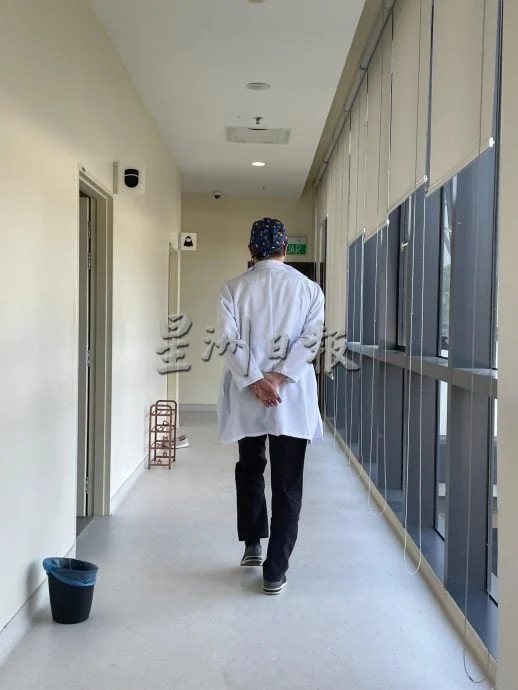
He stresses that the pandemic victory was never about “me” but “us”—all frontliners and healthcare teams working together to break the chain of infection.
“We really did well,” he said with a tone of relief.
Malaysia’s performance was recognized internationally. The World Health Organization praised the country’s efforts, and in April 2024, The Lancet wrote that Malaysia “did almost everything right.” Many countries sought to learn from Malaysia’s experience.
In 2022, Dr Noor Hisham was appointed Chair of WHO’s Standing Committee for Pandemic and Emergency Preparedness and Response (SCHEPPR), one of the organization’s highest-level committees.
But he still worries that people are forgetting the painful lessons of the pandemic—and warns that forgetting may cause history to repeat itself.
ADVERTISEMENT
ADVERTISEMENT






